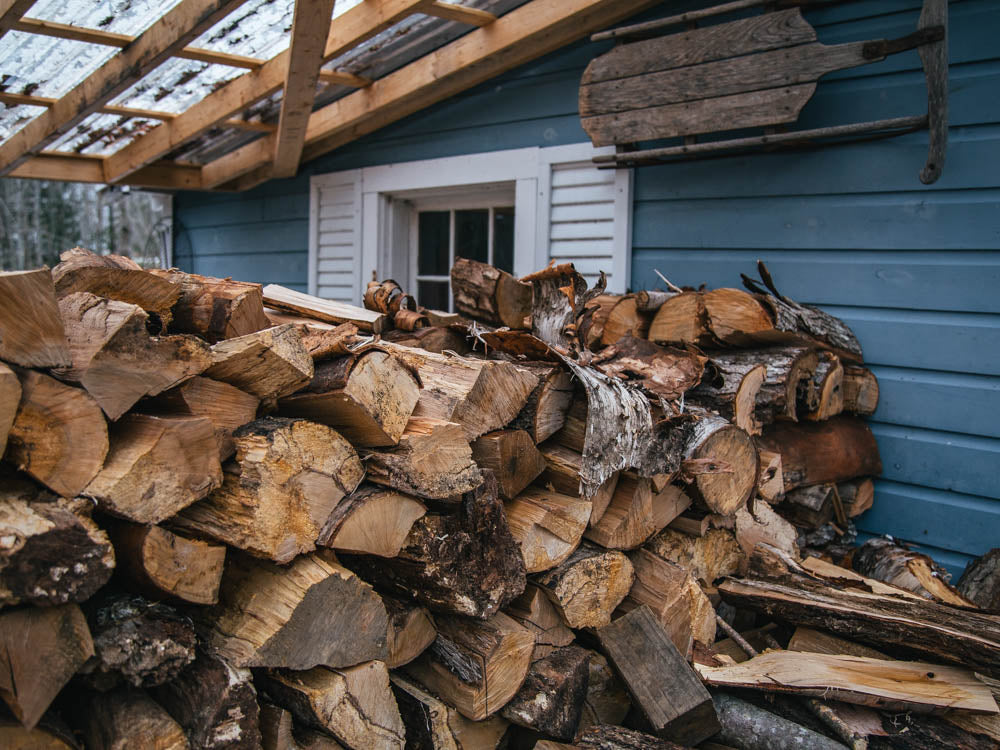
“Every man looks at his wood-pile with a kind of affection. I love to have mine before my window, and the more chips the better to remind me of my pleasing work. I had an old axe which nobody claimed, with which by spells in winter days, on the sunny side of the house, I played about the stumps which I had got out of my bean-field. As my driver prophesied when I was plowing, they warmed me twice, once while I was splitting them, and again when they were on the fire, so that no fuel could give out more heat.”
– Henry David Thoreau, Walden.
The most well-known portion of the above quote, concerning the way firewood warms you twice, has long been attributed to Thoreau. But even he admits that he heard it first from someone else. I’m sure that the saying is as old as the hills. Humans have used wood for heat since time began, or nearly so: Firemaking is a basic human skill.

And there is nothing like the direct, penetrating warmth that wood heat offers. Coming inside on a cold day, shedding mittens and snowy boots and hovering by the woodstove, the chill is driven away immediately. And the teakettle is always ready. Thoreau reflected often on his fire and the companionship he felt with the friendly crackle on the coldest of days. He also accidentally set fire to the woods on several occasions in both Massachusetts and Maine, illustrating the other side of our relationship with this elemental tool – fire can warm you or burn you. It’s not to be taken lightly.
There’s an old Scandinavian proverb that says something like, you can tell a lot about a man by the state of his woodpile. This is the time of year when I start to harbor major doubts about the quality of my own character, because that pile is disappearing fast. But we’ve done the math, measured the rows, cut and chopped and stacked for hours. We should have enough to last until spring. Still, I’m gathering intel on all the dead standing trees around the property. Just in case.

“Life here in this part of Maine is almost inconceivable without wood, and woods. We burn it for heat. Some cut it for a living. Many earn their livelihood from it by making paper, if not toboggans, snowshoes, apple boxes, or canoes. But it all comes from trees. Trees are our lifeblood, in more ways than one.”
– Bernd Heinrich, A Year in the Maine Woods
–Mike

